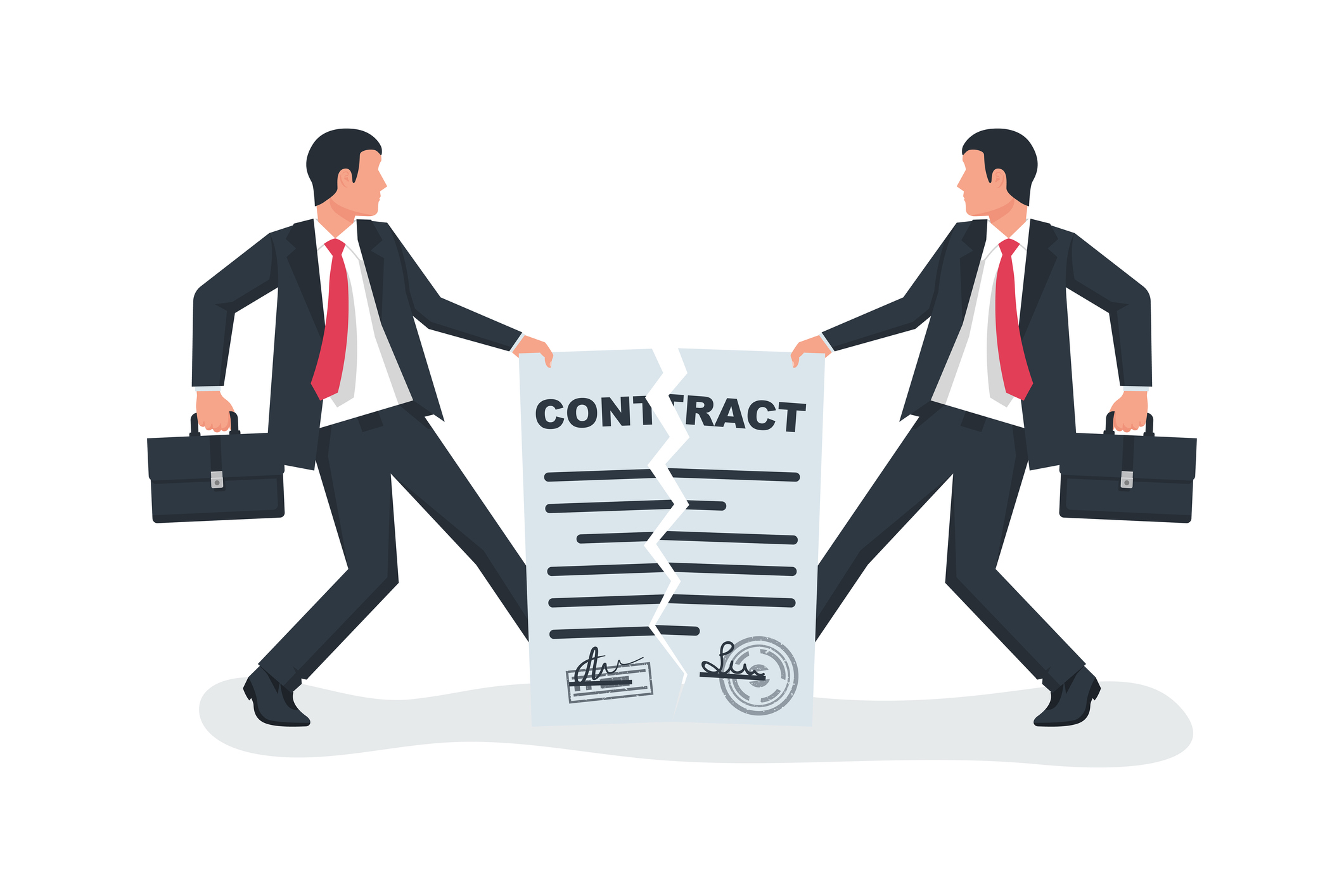Mastery of Solid Business Agreements: Expert Insights into Michigan Contract Law
If you’re a business person or entrepreneur, you’ll need different contracts to support your business. These include sales, services, employment, debt payments, leases, and more. Thankfully, we are experts in Michigan contract law, and are here to provide insights into why contracts are necessary for your business!
We deal with different types of contracts such as business-to-business, employment, and real estate contracts. We will help you through the entire transaction process. A proper contract protects your business and sets out expectations for you and the other party to the agreement.
Contracts help smooth your business transactions and make them more predictable. When you enter into a contract with someone, you should trust them to keep their promises. Trust is important in business agreements. It is essential for both parties to fulfill their obligations.
Regrettably, whether deliberate or accidental, not all individuals fulfill their contractual duties. This can result in your business losing time, money, and other valuable resources. It could even hinder you from meeting your own contractual responsibilities to others.Contract law often is complex. If someone breaks a contract with you, they will probably try to find a loophole to sidestep their responsibilities.
You need a contract lawyer to protect your rights in a contract. The lawyer will help hold the other party accountable for breaking the agreement. Having an experienced lawyer for this task is important.
Breach of Contract

Michigan Contract Law and Breaches
As your business gains momentum, it’s crucial to anticipate and address legal challenges along the way. Whether it’s expanding your team, entering new markets, or negotiating contracts, strategic legal planning is your secret weapon. Let’s uncover the legal strategies that empower you to scale your business responsibly and sustainably. Scaling your business is an exciting milestone, but it also comes with its fair share of legal complexities. As you expand your team, enter new markets, or explore strategic partnerships, it’s essential to ensure that your legal framework evolves in tandem with your business’s growth trajectory.
One of the most significant challenges of scaling a business is navigating the intricacies of employment law. As you hire new employees and expand your workforce, you’ll encounter a myriad of legal considerations, from drafting employment contracts to ensuring compliance with labor regulations. By proactively addressing these issues, you can avoid potential disputes and maintain a harmonious workplace environment. Scaling your business may require new expansions. Expanding into new markets or geographic regions can also present unique legal challenges.
Whether it’s establishing a physical presence in a new location or entering into contracts with international partners, careful legal planning is essential to mitigate risks and ensure compliance with local laws and regulations. Partnering with legal experts who have experience in cross-border transactions can provide invaluable guidance and support during the expansion process. Negotiating contracts and agreements is another critical aspect of scaling your business.
Legal Implications of Contract Agreements
Whether it’s securing financing, entering into partnerships, or licensing your intellectual property, every contract you sign carries legal implications that can impact your business’s future. By enlisting the help of legal advisors who specialize in contract law, you can ensure that your interests are protected and that your agreements are enforceable. Ultimately, scaling your business safely requires a proactive approach to legal planning and compliance. By staying ahead of potential risks and addressing legal considerations early on, you can position your business for sustainable growth and long-term success.
What happens with a breach of contract? If one party to a contract fails to fulfill its side of the bargain, it constitutes a breach of contract, and the other party can sue for damages resulting from the breach.
These damages are not necessarily physical. They can also include profits lost on sales that fell through and time wasted in waiting for deliveries that did not arrive as promised. A breach of contract is a fairly common occurrence in the world of business, and it happens for various reasons.
What Constitutes a Breach of Contract?
- A contract exists,
- The other party breached the contract, and
- You suffered damages as a result of the breach.
Breach of Contract Element #1: Existence of a Contract
The initial requirement to establish a breach of contract in Michigan is demonstrating the existence of a legitimate contract. If the opposing party attempts to evade their responsibilities, they might contend that a defect in the contract renders it invalid.
Proposal and Agreement
For a contract to be formed, one party needs to propose an offer which is then accepted by the other party. The offer and acceptance must provide enough detail for a court to determine what the parties are exchanging. Yet, a party can enforce a contract even if some of the terms are indefinite.
Mutual Agreement
For a contract to be valid, there must be a mutual understanding or “meeting of the minds” between the parties involved. This implies that both parties comprehended the agreement and intended to be legally bound by it.
Merely asserting that you didn’t comprehend the contract or believed it had a different meaning is not enough. To ascertain if there was a mutual understanding, the court will examine the contract’s language to determine the parties’ comprehension.
If the contract’s language is unambiguous, the court will uphold it even if one party alleges they interpreted the terms differently from what was documented. If the contract language is unclear and the parties interpret it differently, the court may choose not to enforce it.
This means that if there is confusion about what the contract means, the court can decide that it is not valid. This can happen when the parties involved in the contract have different understandings of what it says. In these cases, the court has the authority to rule that the contract is not legally binding.
Capacity
Parties must be of sound mind and body to sign a contract. A contract may not be enforceable if one of the parties was mentally incompetent or physically incapacitated. Also, if someone is a minor (under 18) and is part of a contract, it might not be valid in many cases.
Legality
You cannot begin contracts to do something illegal. Illegal contracts are unenforceable by law.
Consideration
All contracts must have what is known as “consideration.” The contract must benefit both parties in some form or fashion. For example, if I promise to landscape in return for $100, that contract would be enforceable by law, because we would both benefit. However, if I promise to paint your house free of charge, you would not be able to legally bind that promise contractually.
Getting Contract Agreements “In-Writing”

Concerning written agreements, it’s consistently wise to “put it on paper.” Legal systems can recognize various verbal agreements, but proving the terms of a spoken agreement can be challenging. Some types of contracts must be in-writing to be enforced. Michigan’s Statute of Frauds requires the following types of contracts to be in writing:
- Contracts concerning real property;
- Services that cannot complete within one year.
- Pacts to secure a loan;
- Contracts in contemplation of matrimony;
- Deals to settle damages from an estate; or
- Agreements for the transaction of commodities exceeding $1,000 (with certain exclusions).
If you possess a verbal agreement, it’s advisable to consult a lawyer to ascertain if the contract is legally binding.
Breach of Contract #2: The Contract was Violated by the Other Party
In order to demonstrate a contract violation in Michigan, it’s necessary to show that the opposing party didn’t meet their contractual duties significantly. Nonetheless, there exist several defenses to contract breach that you might need to foresee. Your legal representative can assist you in predicting these defenses and figuring out the most effective way to counter them.
Materiality
An infringement needs to be significant to be subject to legal action. A significant infringement strikes at the core of the contractual commitment, like a total failure to fulfill a duty. Conversely, minor failures may not be deemed significant.
For instance, suppose you entered into a contract for someone to construct your home, and the contract specified the use of a particular type of material. If the builder couldn’t procure that material and replaced it with a material of equivalent quality, this might not be viewed as a significant breach.
First Breach Doctrine
Should one party significantly violate their contractual duties, it absolves the other party from meeting their responsibilities. A defendant might attempt to evade accountability for their contractual duties by alleging that you were the first to substantially breach the agreement.
Forces Outside Your Control
In some circumstances, forces outside a party’s control can cause unintential breaches. Let’s say your business is located in California and an earthquake struck, destroying your supplier’s factory or warehouse. Then, your supplier may not be able to fulfill a contract.
Sometimes, a contract may preemptively anticipate such situations by stating that one party assumes the risk of these catastrophes.

Breach of Contract #3: You Suffered Damages
The final element of a breach of contract claim is damages. Even if you can prove that the other party materially breached a contract, you must prove that the breach actually damaged you.
For example, If you contracted to sell your machine to another business for $25,000 and they backed out, but you sold the same machine to someone else for the same amount, you only suffered the time and expenses of negotiating with the first purchaser.
Michigan Statute of Limitations for Contracts
In case you’ve been a victim of a contract violation, it’s crucial to respond promptly to maintain your claim. Michigan’s breach of contract statute of limitations requires you not file a claim within six years of the breach for most breach of contract claims.
Nonetheless, contract law in Michigan stipulates varying limitation periods for certain specific contract types, which can range from two to ten years. Therefore, it’s crucial to seek advice from a contract lawyer to ascertain the applicable limitation period for your case.
One area of contracts that many small business owners confuse is the use of employment contracts. The rights and responsibilities of your employee help determine whether you are employing an independent contractor or an employee. To determine whether a person is an employee or an independent contractor, the company looks at the degree of control the company has in the relationship with the person.
- Does the company control or have the right to control what the worker does and how the worker does the job?
- Does the company control the business aspects of the worker’s job? These include arrangements like how the worker is paid, whether expenses are reimbursed, and who provides tools and supplies.
- Is there a written contract or employee benefits such as a pension plan, insurance, or vacation pay?
- Will the relationship continue and is the work a key aspect of the business?
A simple example helps demonstrate the difference. Imagine that you hired a painter to paint your house. If you pick the color, and the type of paint, but leave the painter to: use their own tools, choose their own hours, pay for their own insurance, and decide how best to administer the paint, the painter is most likely an independent contractor.
However, if you require the painter to use your paintbrushes and not spray, to work Monday through Friday from 8:00 to 5:00, and you supply the insurance and materials, the painter will be seen as your employee.
Special Considerations
Another example that is often mistaken is nanny positions. Nannies are most frequently categorized as employees. They are not independent contractors because the employer decides the schedule.
The employer also establishes rules for meals and nap time. Additionally, the employer supplies necessary tools for the job like toys, books, and clothes for the children. The employer handles insurance or uses homeowner’s insurance.
What does this mean for the employer? Taxes and payroll are handled differently for employees versus contractors. An employee receives a W-2, and you withhold certain payroll taxes from each paycheck.
Employees are eligible for overtime pay. Your insurance may not cover the employee: for example, homeowner’s insurance often has an exception for business invitees in the home unless a separate insurance rider is purchased.
By contrast, a contractor receives a 1099 and is responsible for withholding their own taxes. The contractor determines their own schedule so is not eligible for overtime pay. The contractor is responsible for their own insurance, which you should confirm at the outset.
Other considerations in an employment contract are confidentiality and non-competes. Workers should not share any information they learn while working for you. This includes details about your prices, methods, ideas, customers, or other private information.
Keeping this information confidential is important, as sharing it could harm your business. The contract can detail what information is protected and prohibit the disclosure of that information during their employment and for a reasonable period of time after the employment ends.
Non-Competition
Non-competition restricts an employee from working for a similar company both during employment with you and for a period of time after employment ends. The non-competition clause must be narrowly focused as to the length of time and the geographic area.
If your company is a local electrical contractor, a reasonable non-compete would restrict working for another electrical contractor within 30 miles and 2 years from the end of employment.
For example, working as an executive for Ford Motor Company could reasonably restrict you from working for another automotive manufacturer. This may be within the continental United States, Mexico, or even Canada for 2 years after employment.

A breach of contract can destroy trust and the relationship between the parties. It often leads to litigation where damages are sought. Another option we offer our business clients, when available, is to submit their contract dispute to mediation, arbitration, or other alternative dispute resolution procedure. Often a confidential, inexpensive, and agreeable resolution can be reached, allowing the parties to continue transacting business with each other on favorable terms.
Get in touch with us below if you have a business dispute, contract dispute, or need business guidance!
Get in Touch With Us




